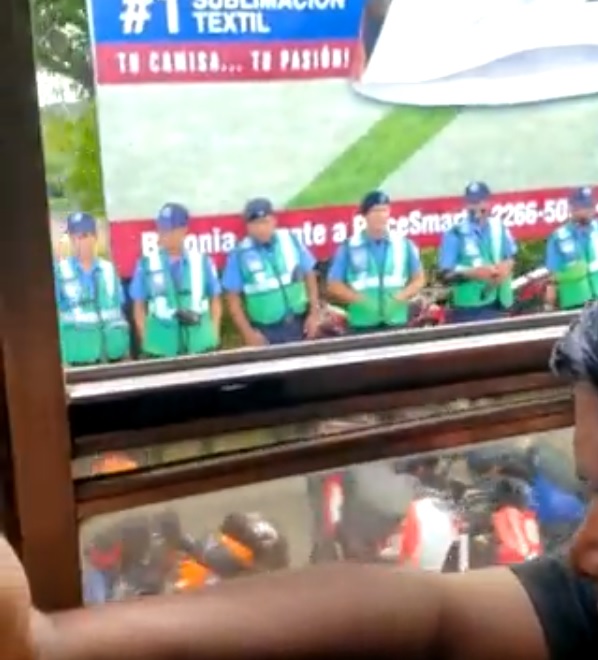There are many remote villages on the Apennines. Monsignor Visioli has now been transferred there from the Congregation for the Doctrine of the Faith.
(Rome) The Undersecretary of the Congregation for the Doctrine of the Faith becomes pastor in the mountains of the Diocese of Parma. An appointed Chief Officer must resign immediately upon a nod from the Apostolic Nunciature in the United States. Purges are taking place again at the Congregation for the Doctrine of the Faith in Rome.
The local Parma edition of the daily newspaper La Repubblica, which Pope Francis is known to read, reported on August 16 the appointments and forthcoming transfers in the diocesan clergy. Bishop Enrico Solmi of Parma traditionally announces this on August 15th. The most recent changes have now been published on the diocese 's website. They also concern Monsignor Matteo Visioli.
Visioli obtained a doctorate in canon law after studying fundamental theology at the Pontifical Gregorian University. He then became episcopal vicar in his home diocese, took on tasks for the Italian Bishops' Conference, was director of the Interdiocesan College for Religious Studies and taught canon law at the Marcianum in Venice. In 2017, Pope Francis summoned him to Rome and appointed him Undersecretary of the Congregation for the Doctrine of the Faith.
Now he was appointed by the Bishop of Parma to be the pastor of three parishes and moderator of a fourth in the mountains of the Apennines. What happened?
Collective punishment
"Our sources at the highest level confirm," according to the traditional site Messa in Latino, that Monsignor Visioli was dismissed because he was associated with Monsignor Giacomo Morandi, who was also promoted from Rome.
Monsignor Morandi was appointed secretary of the Congregation for the Doctrine of the Faith in 2017, at the same time as Visioli. Last January, he was abruptly deported from Rome when Pope Francis appointed him the new Archbishop of Reggio Emilia and Guastalla.
His position was not filled because Francis reformed the Congregation for the Doctrine of the Faith in February by merging it into two sections and appointing a separate secretary for each.
Archbishop Morandi had been dismissed on charges of having written the famous response against the blessing of gay couples of March 15, 2021. In it, the Congregation for the Doctrine of the Faith stated the impossibility of blessing a form of sin. With this negative answer, the Congregation for the Doctrine of the Faith opposed the homo- heresy (Dariusz Oko), which is mainly run by homophile priests from the German-speaking area, supported by some bishops. Pope Francis then left his own Congregation for the Doctrine of the Faith out in the rain so as not to deal with the German Bishops' Conference and to create the gay lobby. Santa Marta distanced itself from the responsum immediately after its publication, and Monsignor Morandi was just as quickly named as a possible candidate for the Bishop's See of Turin. His days in Rome were numbered.
Because Msgr. Morandi had dared to thwart the papal plans - in other words, had not intuitively grasped what Pope Francis does not say but wants - he was removed from Rome a few months later - and now, with a delay, also Msgr. Visioli. Messa in Latino writes:
"The climate of South American dictatorship prevailing at the Roman Curia is becoming ever clearer: suspicion or proximity to someone who has fallen from grace is enough to be dismissed without explanation."
The traditional Rite as a Career Ender
In this context, Messa in Latino mentions another personality of the Congregation for the Doctrine of the Faith, which since the curial reform has officially been called the Dicastery for the Doctrine of the Faith. The American priest Tait Cameron Schroeder, who has been working at the Congregation for the Doctrine of the Faith since 2018, was appointed chief of the second section of the Congregation for the Doctrine of the Faith, the Disciplinary Department, on May 7th.
Tait C. Schroeder is a priest of the Diocese of Madison. He first studied sacramental theology in Rome at the Pontifical Athenaeum Sant'Anselmo and then received his doctorate in canon law from the Pontifical University of Santa Croce. Since then, he has gained a reputation as a well-established lawyer. At the beginning of August, Schroeder was still speaking with Cardinal Raymond Burke at a lawyers' conference in Wisconsin, USA - a proximity that was probably not welcomed in Santa Marta either.
The Apostolic Nunciature in the USA, where Archbishop Carlo Maria Viganò is no longer nuncio but his successor Archbishop Christophe Pierre, hastened to inform Rome that, according to Messa in Latino, that Schroeder, the priest from the USA, was in fact “guilty of the horrific crime of celebrating in the traditional Rite for visiting groups of pilgrims, forcing Don Schroeder to resign from the office he had just received."
Text: Giuseppe Nardi
Image : MiL
Trans: Tancred vekron99@hotmail.com
AMDG










